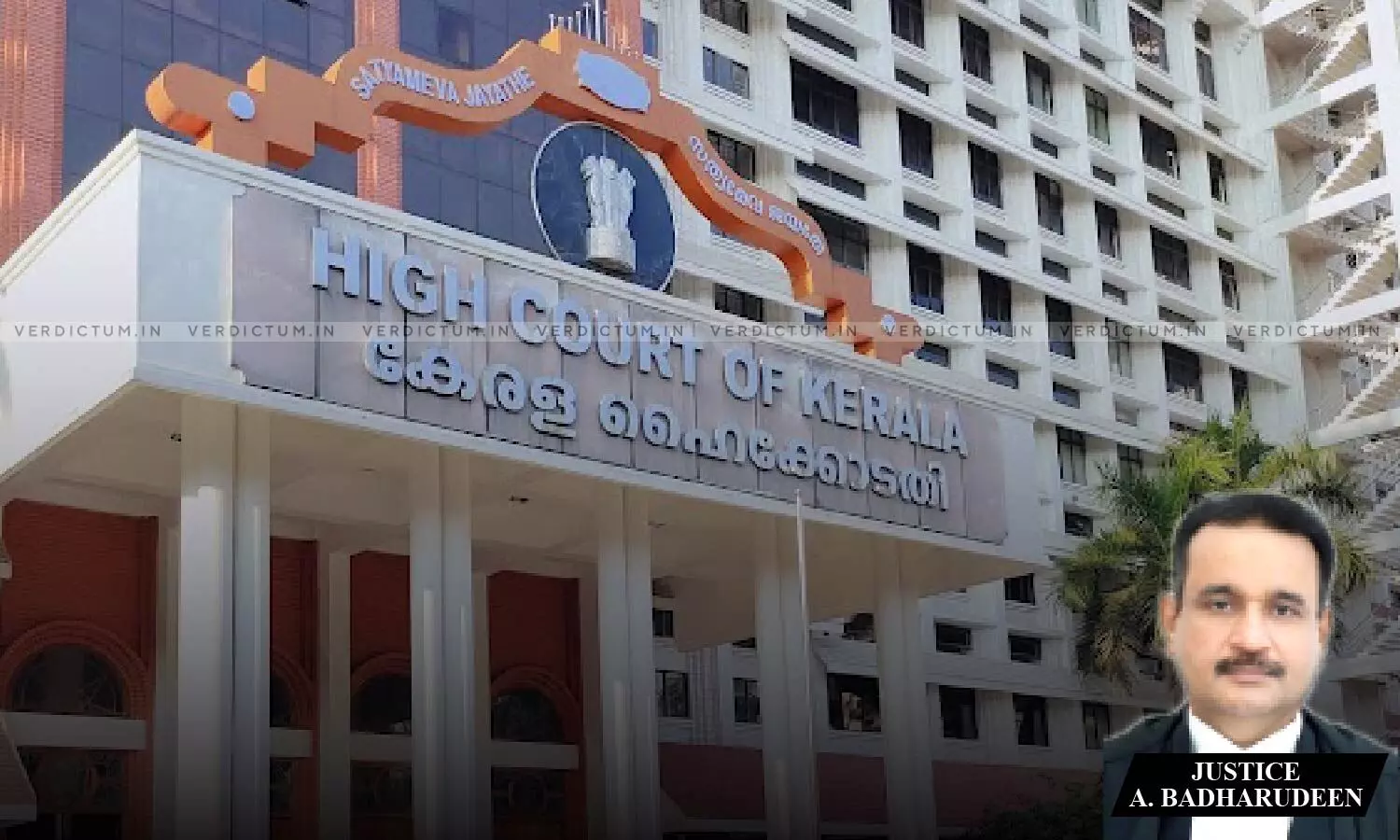
Hands Of IO Have Been Chained By Interim Order 'Not To Arrest'; Courts Must Ensure Disposal Within 6 Weeks- Kerala HC Where Accused Avoided Arrest For Years
 |
|A Kerala High Court Bench of Justice A Badharudeen has stressed over the time-bound disposal of anticipatory bail applications, which is significant for the completion of an effective investigation.
In light of the same, the Court passed directions to ensure that the posting of anticipatory bail applications where "not to arrest" interim orders were passed were placed before appropriate benches for timely disposal.
In that context, the Court said that, "...inclined to mention certain instances of similar nature, in hundreds of cases, which I came across, where after filing anticipatory bail applications starting from the year 2020 onwards and on getting interim protection ‘not to arrest’ the bail applicants avoided arrest in many cases where very serious offences are alleged to be committed by the bail applicants including offences under Section 376, 307, 326, 406, 409, 395, 420 of the IPC etc., (the list of offences is not exhaustive). It is disgust to note that in view of the interim order passed by this court ‘not to arrest’, the hands of the Investigating Officer have been chained and therefore, proper investigation of serious crimes, where custodial interrogation, recording of statement of the accused, recovery of weapon-facts, at their instance were curtailed and in such a way the possibility of conviction in serious crimes has been given a go-bye as a result of ineffective investigation."
Counsel Anila Umesh appeared for the petitioner.
In this case, the petitioner, employed as a bank peon, was accused of embezzling more than five crore rupees from the bank through the use of forged documents. The allegations against him included committing crimes like forgery, breach of trust, and cheating, all of which are punishable under the Indian Penal Code (IPC).
On February 16, 2021, the petitioner filed an application seeking anticipatory bail. By February 18, 2021, he received an interim order preventing his arrest. On March 18, 2021, the anticipatory bail application was posted after impleading an additional respondent. Following this, the application was not brought before the Court for a hearing until two years had passed.
The Court observed that in cases involving allegations of forgery, the specimen signature, handwriting, etc. are essential to prove the allegations, and the same could not be collected by the Investigating Officer. Noting the fallacies in such a system, the Court observed that, "the Investigating Officer was forced to file final report without opting for the said vital mode of investigation. Invariably the ultimatum of such investigation results in acquittal of the accused for want of evidence and the said practice should be avoided to save the system in tact."
Stressing the necessity for the time-bound disposal of anticipatory bail applications, the Court relied on the case of Satender Kumar Antil v. Central Bureau of Investigation & Others, wherein the Apex Court specified that applications for anticipatory bail are expected to be disposed of within a period of six weeks with the exception of any intervening application.
Holding that the petitioner was at liberty to move for regular bail, the Court disposed the petition while ordering that, "the Registrar (Judicial) is directed to ensure posting of anticipatory bail applications, including anticipatory bail applications where 'not to arrest' order is in force, before the bench dealing with the roster to facilitate timely disposal of anticipatory bail applications by this court in obedience to the directions given by the Hon'ble Apex Court".
Cause Title: MA Mohanan Nair v. State of Kerala & Ors.
Click here to read/download the Judgment